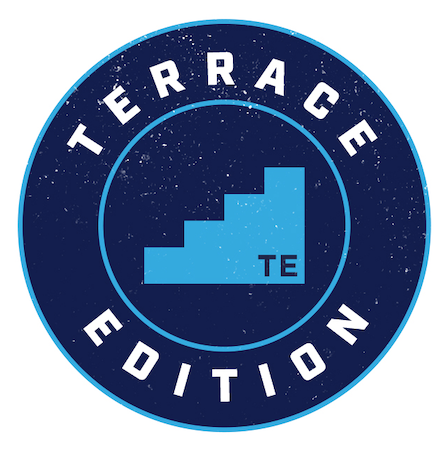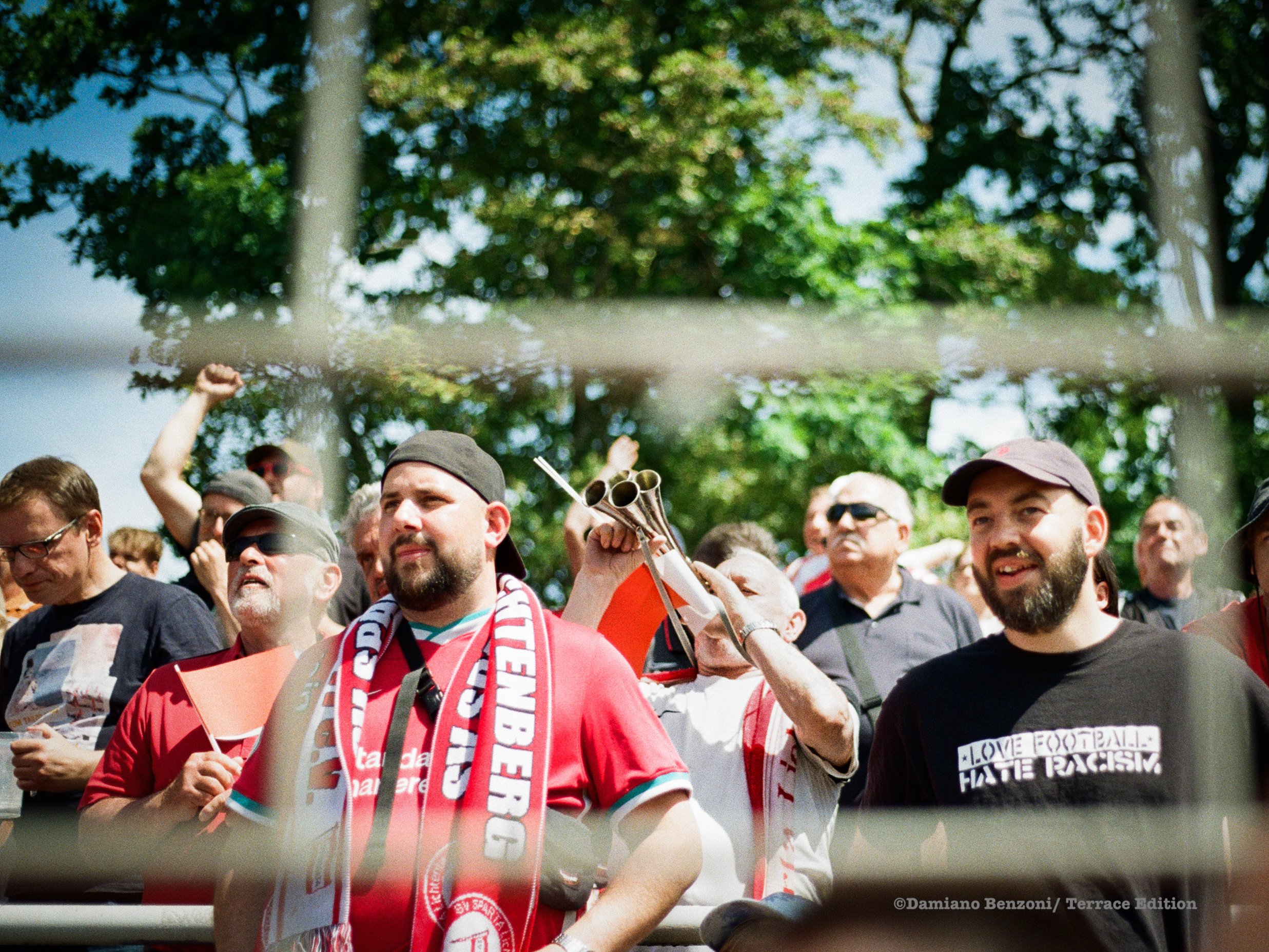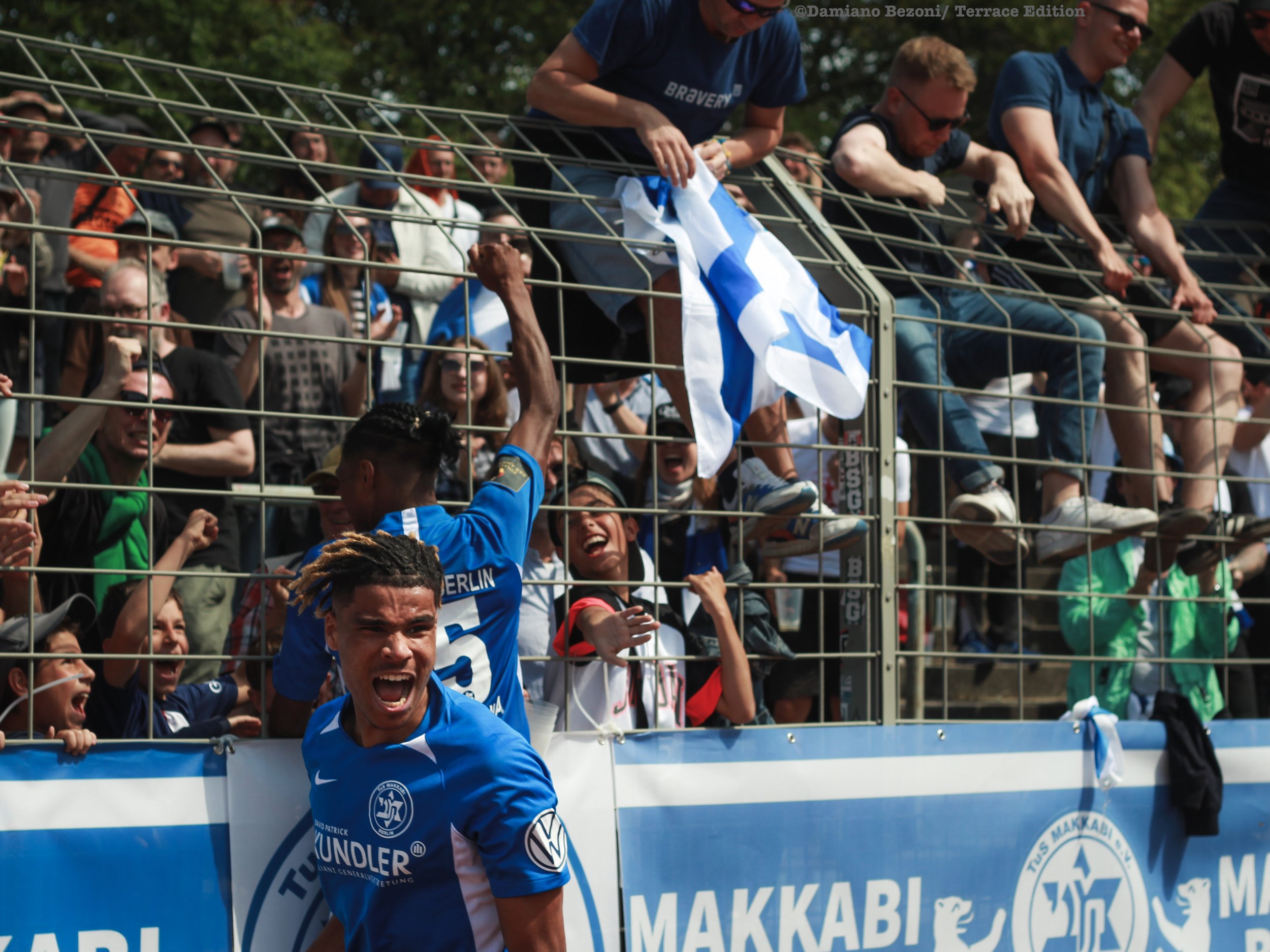Going to Berlin

Words: Damiano Benzoni
Images: Damiano Benzoni
118th minute, everything is still at a standstill under a scorching early-June Berlin sun. The ball is positioned just a couple of metres outside the Sparta box as Makkabi’s Can Sakar sets up for a free-kick.
The Berlin Landespokal, or Berlin Cup, is one of the 21 regional cups of Germany. The finals all kick off on the same day, dubbed Finaltag der Amateure, or Amateur Final Day. It’s not only a regional competition, but it can also mean a pass to sit at the grown-ups’ table, as the winner of each regional cup will take part in the first round of the DFB Pokal, the Cup of Germany.
And this year’s Berlin Cup was laden with surprises.
The first surprise package was FC Liria, a classy seventh division side founded by Kosovo Albanians, who reached the quarter finals by beating Regionalliga (fourth division) side and two-time Bundesliga participants Tennis Borussia Berlin. And even though no less than seven Berlin teams took part in the Regionalliga, the final was played between a fifth division and a sixth division side.
©Damiano Benzoni/ Terrace Edition. TUS Makkabi vs SV Sparta Lichtenberg.
TUS Makkabi had been enjoying the season of their lives, ending the Oberliga (fifth division) in third place as a newly promoted team and pipping Regionalliga side Viktoria Berlin 3-2 in the Berlin Cup semis. Sparta Lichtenberg won the Berlin Liga (sixth division) and took down not one, but two Regionalliga sides on their way to the Berlin Cup final, including 10-time GDR Champions Dynamo Berlin.
Neither team had ever reached the Berlin Cup final before. Both of them perfectly represented what an important role identity plays in lower-league Berlin football. TUS Makkabi is a Jewish sports club set up in 1898, disbanded 40 years later by the Nazi regime and then re-established after WWII.
Hailing from the working-class East Berlin neighbourhood of Lichtenberg, Sparta was founded in 1911 and suffered a similar fate: antifascist athletes such as Werner Seelenbinder and Hans Zoschke were active in the club, which was disbanded by the Nazis. Sparta sportsmen had to found a new club, disguising themselves under a different name.
It was a surprising turnout, with more than five thousand people attending the Berlin Cup final at the Mommsenstadion, usually home to Tennis Borussia. Just a few hours later and a couple of kilometres away at the Olympiastadion the last act of the DFB Pokal between Eintracht Frankfurt and RB Leipzig would be about to kick off, and here are Makkabi and Sparta battling for a place in the first act of next year’s edition.
©Damiano Benzoni/ Terrace Edition. TUS Makkabi vs SV Sparta Lichtenberg.
The atmosphere is electric, with both sets of fans making the most of the occasion. Most of them are very young - especially on the Makkabi side - but that doesn’t mean they can’t have a go on the drum, or the megaphone. While the red side erupts with an obvious reference to the movie 300 by answering “AHU!” to the call of Sparta, the blue side express their Jewish identity through a yodelling chant.
With the score a 1-1 draw in the 90th minute, the match went to extra time, and Sparta players slowly start to suffer against a fresher Makkabi side. Then, the 118th minute: Can Sakar’s free kick is deflected into goal by a Sparta defender, and the blue half of the stadium goes crazy.
When Kiyan Soltanpour scores a goal to make it 3-1 just a minute later, the gates open and Makkabi fans start running towards the pitch, with their players begging them to go back as the match is not over yet.
But it is, and the Mommsenstadion is painted in blue smoke bombs and celebration, while on the Sparta end, supporters console and embrace their team.
With Sparta’s promotion to the Oberliga, the two sides will meet again in next year’s league. But it is Makkabi who will have the honour of hosting Bundesliga’s Wolfsburg in the first round of the Cup of Germany next August. And it is them who now can sing, somewhat ironically, the old chant that accompanies every team dreaming of making it to the DFB Pokal final at the legendary Olympiastadion: Wir fahren nach Berlin - We’re going to Berlin.
©Damiano Benzoni/ Terrace Edition. TUS Makkabi vs SV Sparta Lichtenberg.
©Damiano Benzoni/ Terrace Edition. TUS Makkabi vs SV Sparta Lichtenberg.
©Damiano Benzoni/ Terrace Edition. TUS Makkabi vs SV Sparta Lichtenberg.
©Damiano Benzoni/ Terrace Edition. TUS Makkabi vs SV Sparta Lichtenberg.
©Damiano Benzoni/ Terrace Edition. TUS Makkabi vs SV Sparta Lichtenberg.
©Damiano Benzoni/ Terrace Edition. TUS Makkabi vs SV Sparta Lichtenberg.
©Damiano Benzoni/ Terrace Edition. TUS Makkabi vs SV Sparta Lichtenberg.
©Damiano Benzoni/ Terrace Edition. TUS Makkabi vs SV Sparta Lichtenberg.
©Damiano Benzoni/ Terrace Edition. TUS Makkabi vs SV Sparta Lichtenberg.
Images shot on Canon EOS 650 (35 mm) and Canon EOS Rebel t5i (digital).
You can find Damiano on Twitter and Instagram: @dinamobabel

















